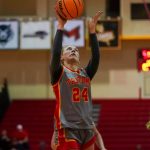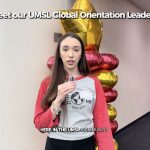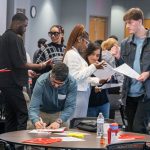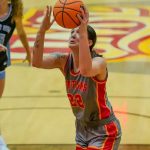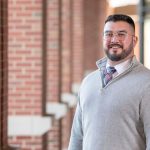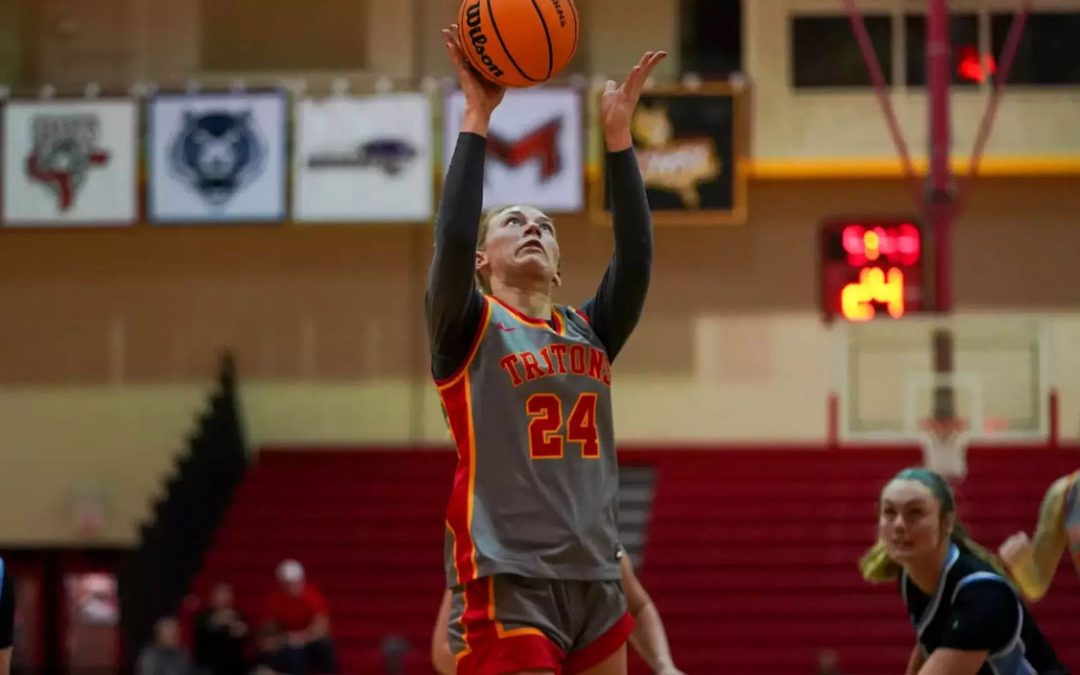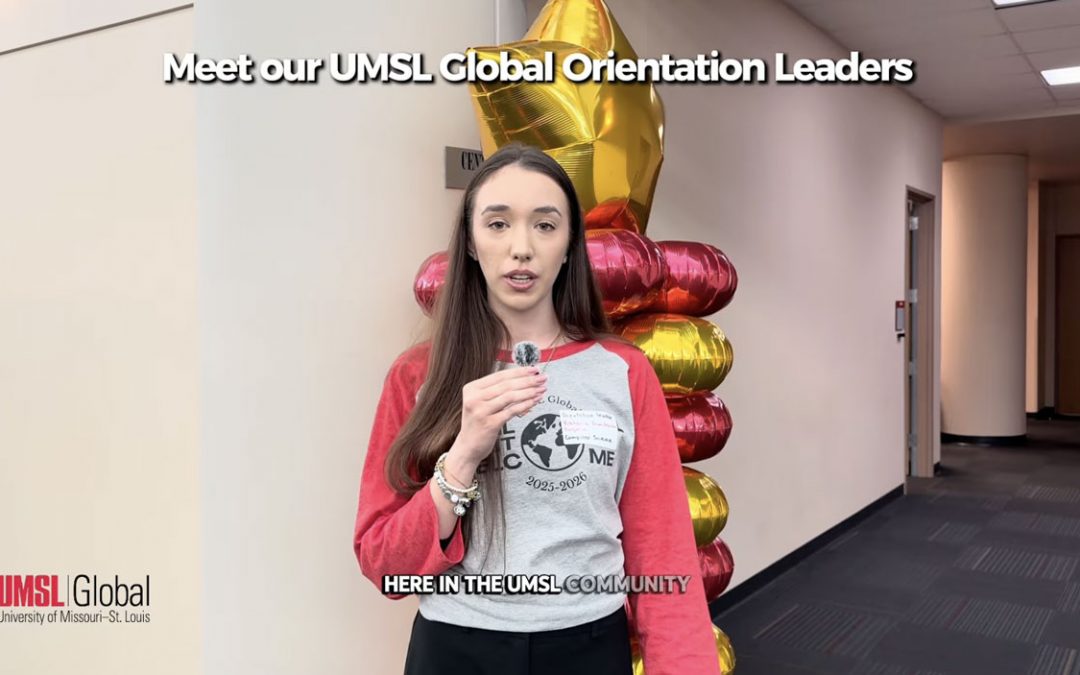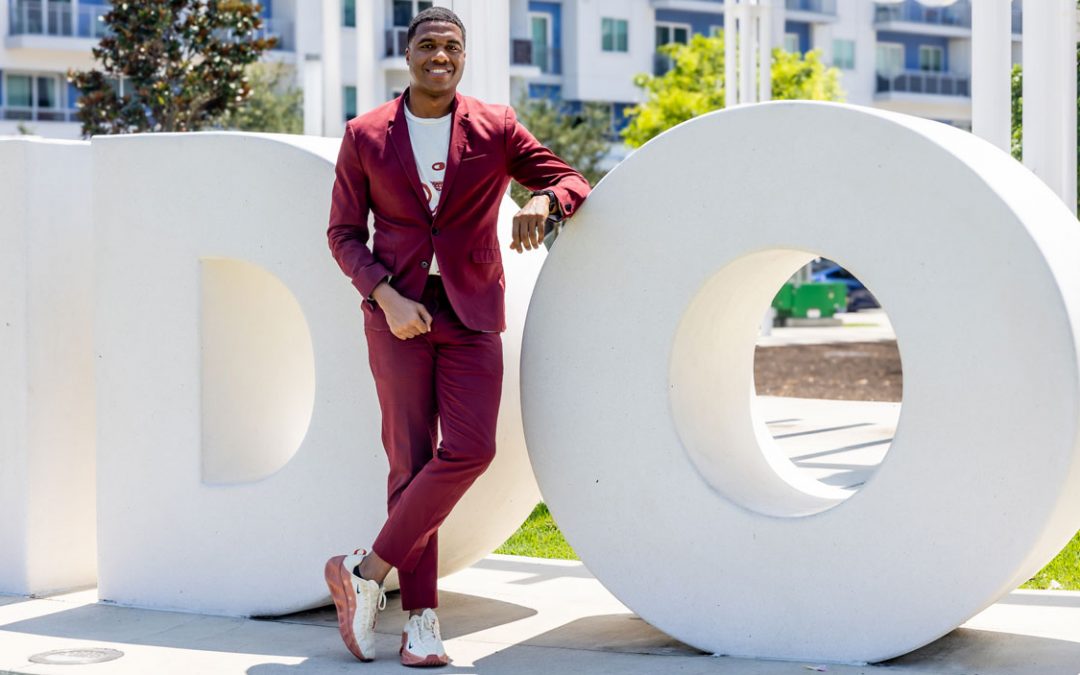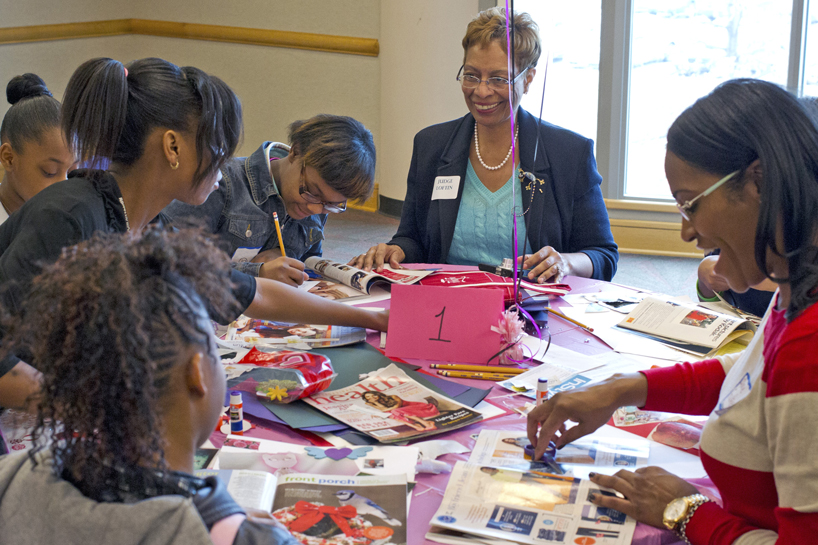
Brenda Stith Loftin (center), recently retired associate judge of St. Louis County Circuit Court and UMSL alumna, works with a table full of middle school girls and a teacher at the 2014 Girls Summit Jan. 31 at UMSL. (Photo by August Jennewein)
The room buzzed with the nervous, high-pitched voices of more than 80 middle school girls from diverse backgrounds brought together for a life lesson on success and making the right choices early in life. Brenda Stith Loftin, recently retired associate judge of the 21st Judicial Circuit, St. Louis County, Mo., had to lean in to hear the petite girl sitting next to her.
Loftin greeted the girls, their teachers and counselors for the first 2014 Girls Summit held Jan. 31 at the Millennium Student Center at the University of Missouri–St. Louis. It was organized by the Sue Shear Institute for Women in Public Life at UMSL and three members of the National Association of Women Judges.
“We figured this was a good age to start girls thinking about the options they have in their lives,” said Loftin, a UMSL alumna and past president of the NAWJ. “We wanted to bring them to a college campus and give them the opportunity to meet successful, professional women.”
Loftin was joined by Nannette Baker, U.S. district magistrate judge, Eastern District and Laninya Cason, associate circuit judge, 20th Judicial Circuit, St. Clair County, Ill. Both judges also are members of the NAWJ.
A team of UMSL students involved in the Sue Shear Institute’s LEAD Program guided the girls through various activities. The UMSL students, chosen for their leadership skills and interest in public policy, organized the Girls Summit program during the fall semester. They returned on Friday to see it come to fruition.
Tonya Chappell, a senior social work major, asked each girl to “tell us about yourself.”
“I like to laugh.”
“I’m African American and Dominican.”
“I play basketball, dance and sing.”
The three girls from Brittany Woods Middle School in University City, Mo., were getting to know the rest of the middle school girls at the table. Introducing yourself to strangers can be a difficult task, especially if you’re 13.
The middle school girls came from public and private schools in the city and county.
Annaly Eimann, a doctoral student in early childhood education and a LEAD Program participant, guided another group. Eimann comes from Namibia, a southeastern African nation that gained its independence from South Africa in 1990. She said she sought out the Sue Shear Institute program because of the emphasis on empowerment.
“I have been able to empower myself, in order to empower others,” Eimann said.
She looked across the room at the girls and talked about their counterparts in Africa. A teacher for many years, she plans to return home to effect change in her country’s education system.
An aspiring attorney, a chief executive officer, a dentist, a graphic designer, a teacher, a social worker, a psychology professor and judges – the young girls were interacting with women who had reached or were well on their way to reaching successful careers. They all had a message on how to get there, none stronger than Judge Cason from East St. Louis, Ill.
“Everybody can’t be Beyonce,” Cason said. “So start right now thinking about what you want to do. You will not be able to do it unless you get an education.”
Cason recited her education credentials. She graduated from Lincoln High School in East St. Louis, Ill., attended the University of Illinois, Urbana-Champaign where she earned a bachelor’s degree in finance and a masters degree in education. She earned a law degree from the University of Tennessee, Knoxville. She became a full-time attorney with the national law firm of Hinshaw & Culbertson and a partner in 2001.
In 2003, Cason was sworn in as an associate circuit judge for St. Clair County, Ill., becoming one of the youngest sitting judges in the state. That courtroom has provided her with a view of young people that many of the girls in the room may have never seen.
“I see girls in trouble all the time” Cason said. “Don’t let anybody use you or abuse you because you can’t be a grown woman with a baby when you’re 13. You want bigger things in your life. You want a paycheck, not a government card.
“Look in the mirror and ask yourself, ‘What can I be?’” she told the girls. “You are your most valuable asset. Be a lawyer, be an accountant, be a doctor, be a beautiful black woman. And go to school.”
According to Nannette Baker, the NAWJ has a similar program called “The Color of Justice” targeting girls and minority high school students to consider pursuing careers in criminal justice.
“But the NAWJ wanted to reach younger girls,” Baker said. “They are at an age where we think we can have a positive impact on their lives. We want them to know there are choices out there for them. We couldn’t have done this without the help of the Sue Shear Institute and UMSL. We are so pleased with the turnout.”
Other presenters for the daylong event included Rhonda Gray, director of Almost Home, a St. Louis shelter for teenage mothers, and Angela Lewis, a motivational speaker, former Division I college athlete and coach, and author of “The Game Changing Assist: Six Simple Ways to Choose Success.”



